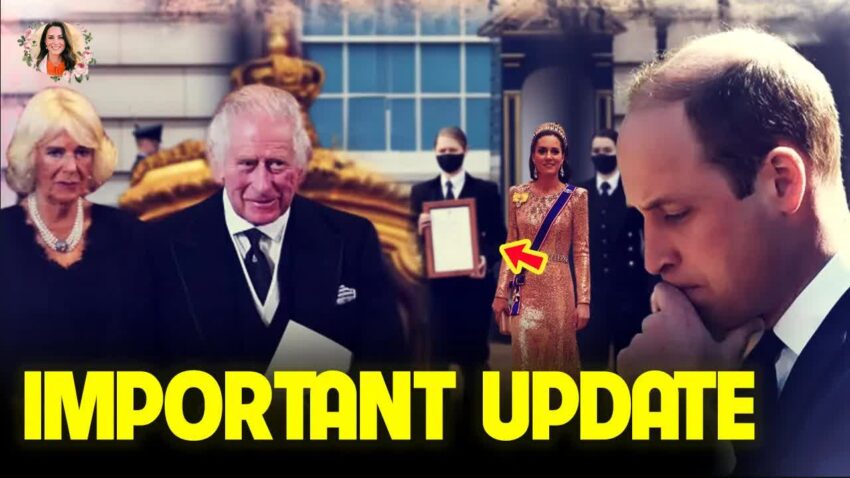As 2024 unfolds, the British royal family finds itself navigating a tumultuous landscape, particularly for King Charles III.
Battling health challenges while dutifully performing his royal obligations, the king’s resilience is being put to the test.
With the looming prospect of change, attention naturally shifts towards Prince William and Catherine, who are poised to ascend the throne upon King Charles’s passing.
For King Charles, these days are likely filled with contemplation about his legacy and the time he has left.
His ongoing health struggles have raised concerns, yet he remains steadfast in his commitment to serve.
The king’s belief in his lifelong oath means abdication is not an option on the table.
While the severity of his health issues remains uncertain, one thing is clear: he intends to fulfill his responsibilities as long as he is able.
Prince William, on the other hand, appears to be preparing for the inevitable transition of power.
His thoughts about stepping into a more prominent role reflect a readiness to shoulder greater responsibilities.
However, this shift isn’t just about following royal protocol; it’s a personal journey laden with emotional complexities.
As he navigates his future within the monarchy, he grapples with the balance between fulfilling his duties and establishing his own identity.
Royal experts suggest that when Prince William eventually takes the throne, he may adopt a more progressive approach compared to his father.
This could mark a significant departure from tradition, as he seeks to modernize the monarchy while respecting its historical roots.
Involving Catherine in royal duties further solidifies this strategy, as their united front aims to strengthen the royal family during these uncertain times.
Interestingly, King Charles’s popularity has taken a hit, with recent polls indicating he’s not the favorite among the public.
Speculations have even emerged, suggesting that the late Queen Elizabeth II might have preferred William and Catherine over Charles and Camilla as the next monarchs.
While such rumors could resonate with the public sentiment, they hold no legal ground.
The line of succession is firmly established by the 1701 Act of Settlement, ensuring that only direct heirs can ascend the throne.
Despite his low approval ratings, King Charles remains the most qualified member of the royal family to be king at this moment.
Earlier in the year, concerns for his health became a national topic, but through it all, he has displayed remarkable determination to uphold his duties.
The once-hopeful belief that he would live as long as his parents, Queen Elizabeth II and Prince Philip, has diminished, casting a shadow over the monarchy’s future.
As the king approaches the second anniversary of his reign on September 8th, the day carries a bittersweet weight.
It marks not only his ascension but also serves as a reminder of the loss of family members, a poignant reality for any reigning monarch.
This duality of celebration and remembrance adds depth to the royal experience, intertwining duty with personal grief.
In the midst of these changes, the support of Princess Anne proves invaluable for Prince William and Catherine.
Her guidance and encouragement have been crucial in helping them navigate the intricate world of royal life.
With a work ethic instilled by her late parents, Princess Anne has consistently been recognized as one of the hardest-working royals, and her influence will undoubtedly shape the future of the monarchy.
In 2023 alone, Princess Anne undertook an impressive 457 engagements, demonstrating her commitment to royal duties.
Now, she is set to take on a new role as president of the In-N-Out Naval Military Club, a position that holds sentimental value as it connects her to her late father, Prince Philip, who was a long-time member and president since 1979.
As the British monarchy stands at a crossroads, the interplay of health, duty, and personal relationships will define its path forward.
With King Charles’s health in question and Prince William and Catherine gearing up for their future roles, the royal family must adapt to the changing tides while honoring its rich history.
The coming years will undoubtedly reveal how this storied institution evolves amidst the challenges it faces.
